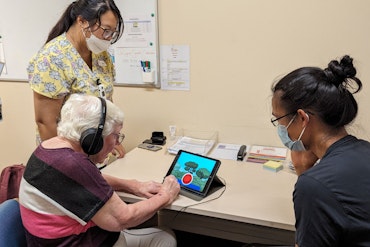Heart attack risk resource launches online — are you safe?
Heart attacks may seem like something you would never expect to happen, until it does. Web-based resource Know Your Numbers, Treat Your Risk aims to change that.

An estimated 110 Australians have a heart attack each day and the content on Know Your Numbers, Treat Your Risk may help them learn how to reduce their risk of a subsequent event. (Source: Supplied)
Key points:
- One in 10 people who have a heart attack will experience another within a year
- Half a million Australians have high LDL cholesterol levels, putting them at risk
- 75 percent of people who have a heart attack experience ‘the cardiac blues,’ which is feelings of anger, denial, worry, or sadness after the attack
International non-profit, the Global Alliance for Patient Access (GAfPA) is launching Know Your Numbers, Treat Your Risk this week, as an online hub for tools, resources, information, support and stories of survivors for people to be proactive with their cardiovascular health.
High low-density lipoprotein (LDL) cholesterol — often referred to as ‘bad cholesterol’ — levels are a significant risk factor for cardiovascular disease and contribute to the likelihood of a heart attack or stroke.
It’s more than just an information guide to heart attacks though, as Know Your Numbers, Treat Your Risk aims to help others identify and relate with the emotional toll that a cardiovascular event can take, as three-quarters of heart attack survivors say they have been through ‘cardiac blues.’
Signs of someone dealing with the cardiac blues after an event include:
- Loss of interest in usual activities
- Feeling tearful and crying easily
- Thoughts about death
- Decreased appetite
- Reduced sex drive
Left untreated, the emotional consequences can lead to changes in behaviour which may continue to negatively impact someone’s heart health. The website is about empowering them to take an active role in managing their cardiovascular health by ‘knowing their numbers and treating their risk.’
Patient stories and expert interviews explore these feelings, which often occur in the first few weeks or months and are a normal part of recovery. People are encouraged to proactively work with their doctor to develop a heart health care plan to address factors such as cholesterol, blood pressure, diet, weight, exercise and mental wellbeing.
“Empowering people who have had a heart attack to engage in their ongoing health care by working with their general practitioner (GP) […] has been shown to be critical to secondary prevention,” said Professor Charlotte Hespe, Head of General Practice and Primary Care Research, Sydney School of Medicine.
“Know Your Numbers, Treat Your Risk uses educational resources, patient stories and interviews with experts to empower patients with the knowledge, tools and support to reduce their risk of another heart attack or stroke.”
Naturally, patients and their doctors try to address high cholesterol through healthy eating, lifestyle modifications and medications, but many do not achieve target LDL cholesterol levels that meet Australian guidelines, which recommend an LDL cholesterol target of less than two millimoles per litre (2 mmol/L) for primary prevention and less than 1.8 mmol/L for secondary prevention.























